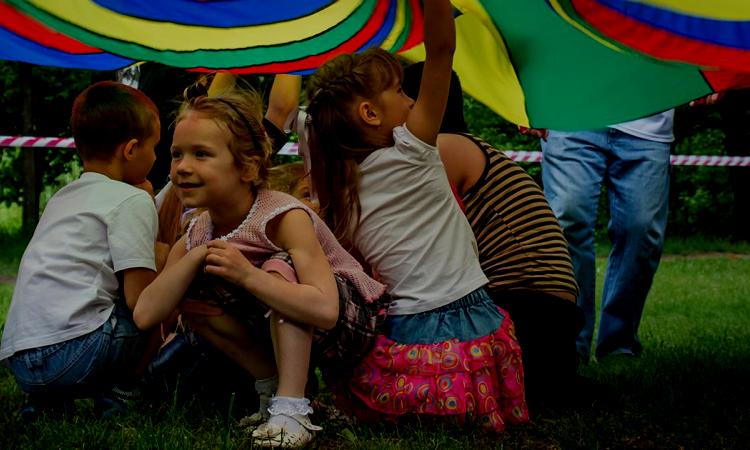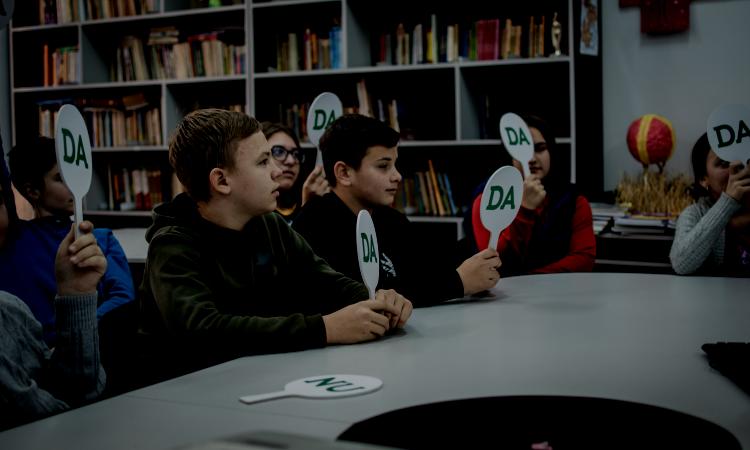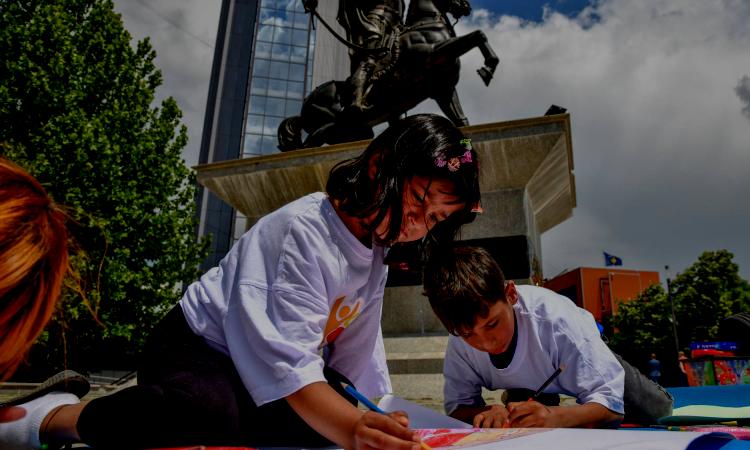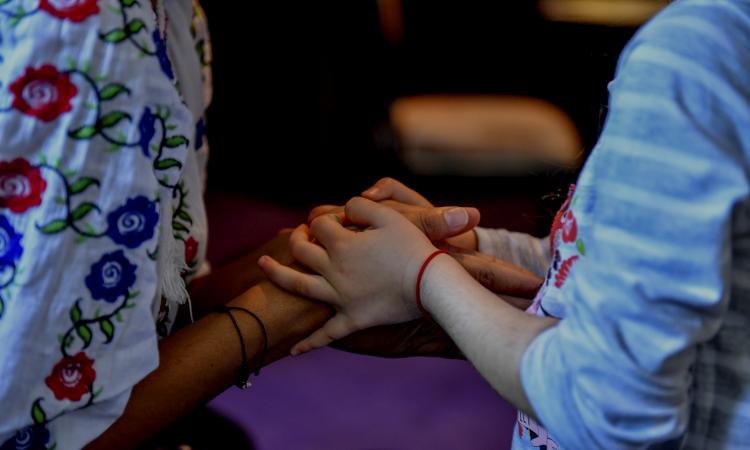![[European Union] Joint Position Paper: The EU Strategy on the rights of the child (2021-2024) must promote the principles of a restorative child-friendly justice](/sites/default/files/styles/images/public/2023-02/palestine_juvenile_justice_original_58964.jpg?itok=9ms7FPc9)
The European Forum for Restorative Justice (EFRJ) and Terre des hommes in Europe (Tdh) would like to draw the attention of the European Commission (EC) to the importance of a restorative approach in all matters that involve children, and in particular call on the EC to develop a EU Strategy on the rights of the child (2021-2024) that includes the principles of a restorative child-friendly justice. A Joint Position Paper by EFRJ and Tdh has been submitted to the European Commission.
Restorative Justice (RJ) with children is applicable in various settings, including family, schools, and the criminal justice system. RJ looks at children as first and foremost children. RJ is particularly valuable to protect vulnerable children, empower children in identifying and managing emotions to prevent (and/or respond to) conflict and violence, and give them a safe space when dealing with matters relevant to them.
A restorative child-friendly justice approach proposes a tailor-made, creative and flexible communication processes for both child victims and child offenders. The premise that guides a restorative approach is that each intervention designed for children should take into account their individual characteristics, needs and strengths.
To fully implement the dynamics of a restorative child-friendly justice, it is crucial also to work on the promotion of a restorative culture. School is an important environment in which to promote RJ as an educational tool to learn about emotions, self-expression, to care about relationships and to learn about ways to address conflict and harm.
Based on research and on international and European provisions on RJ and on the rights of the child, EFRJ and Tdh believe that the EU Strategy on the rights of the child (2021-2024) should call on the European Commission and the Member States to pursue the following priorities in terms of Restorative Justice with Children:
1. A secured framework for child-friendly RJ
- Advocate for and encourage policy makers to implement a statutory basis and national legislation on RJ for children.
- Encourage States to enhance child justice by developing long term and sustainable strategies and action plans which include quality child-friendly RJ programmes.
- Allocate adequate human and financial resources to guarantee well-resourced child-friendly RJ programmes.
2. Availability and accessibility of RJ for children
- Encourage the use of RJ and guarantee the wide availability of RJ mechanisms for child victims and offenders at all stages of criminal justice proceedings including diversion and after care.
3. Inclusive and meaningful RJ practices for children
- Guarantee safe and high-quality RJ practices with children, in full compliance with procedural safeguards and international and European child rights standards.
- Invest in the development and implementation of child-centred individual multidisciplinary needs’ assessment’s tools and procedures.
- Collect data and document promising practices on child-friendly RJ developed locally.
4. Meaningful participation of children in RJ
- Guarantee a meaningful participation of the children involved in RJ, in multiple creative ways adapted to their level of development and individual needs.
- Provide effective, accessible and quality mechanisms and tools to empower children, family members, educators and other staff members in using conflicts as an opportunity for learning.
- Ensure that RJ involving children guarantee equal and inclusive participation of children, taking into their account their characteristics.
5. Reinforcing the capacities of professionals working in RJ with children
- Ensure that children involved in RJ are in contact with professionals with the adequate level of specialisation to work in youth justice.
- Provide continuous and specialised training programmes for professionals working with children.
- Create multi-disciplinary teams at national, regional and local level, facilitating cooperation among professionals that work on specific cases for the best interests of each child.
6. Promoting a restorative culture for children
- Promote a restorative culture in all settings where conflict may arise and children may be present, such as families and schools.
- Raise awareness among child justice actors and community members on the benefits of RJ for children.
Download the full Joint Position Paper.
***
Terre des hommes (Tdh) is the leading Swiss organisation for children’s aid. Since 1960, Tdh has helped build a better future for vulnerable children and their communities, making an impact with innovative and sustainable solutions. In 2019, we provided assistance to over four million children and members of their communities in 38 countries through our health, protection and emergency relief programmes.
The European Forum for Restorative Justice (EFRJ) is the leading European network for supporting the development of restorative justice in Europe. Founded in 2000 at the KU Leuven Institute of Criminology, the EFRJ is a membership organization that currently comprises around 500 members (either individual or organisational), from Europe and beyond.
Tdh Regional Office in Hungary and EFRJ, together with Restorative Justice Netherlands, Tdh Romania and Tdh Greece, are implementing the "i-RESTORE - Better Protecting Child Victims Rights through Restorative Justice" project that promotes the use of Restorative Justice in cases involving child victims by improving knowledge amongst national stakeholders on child-victim friendly Restorative Justice and empowering children to advocate for better protection of child victims. The project is funded by the European Union's Justice Programme (2014-2020).



